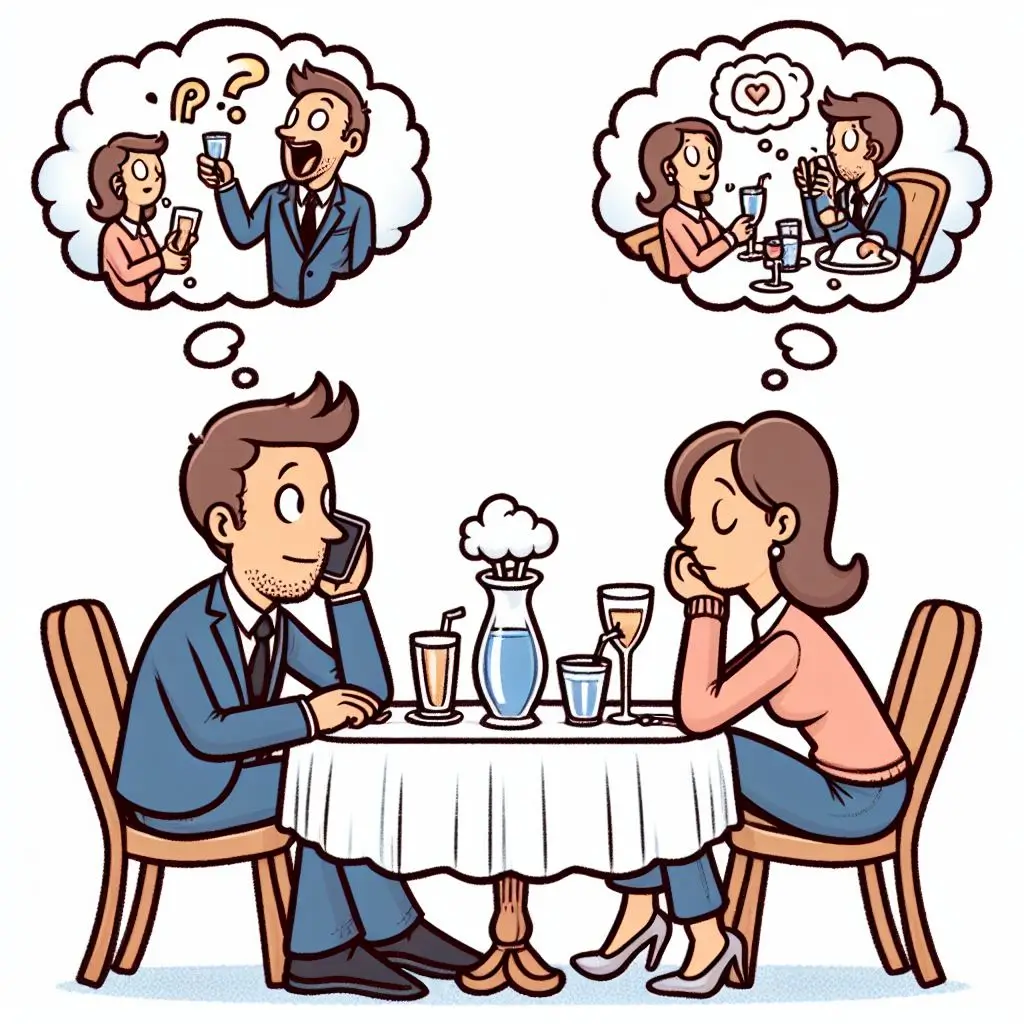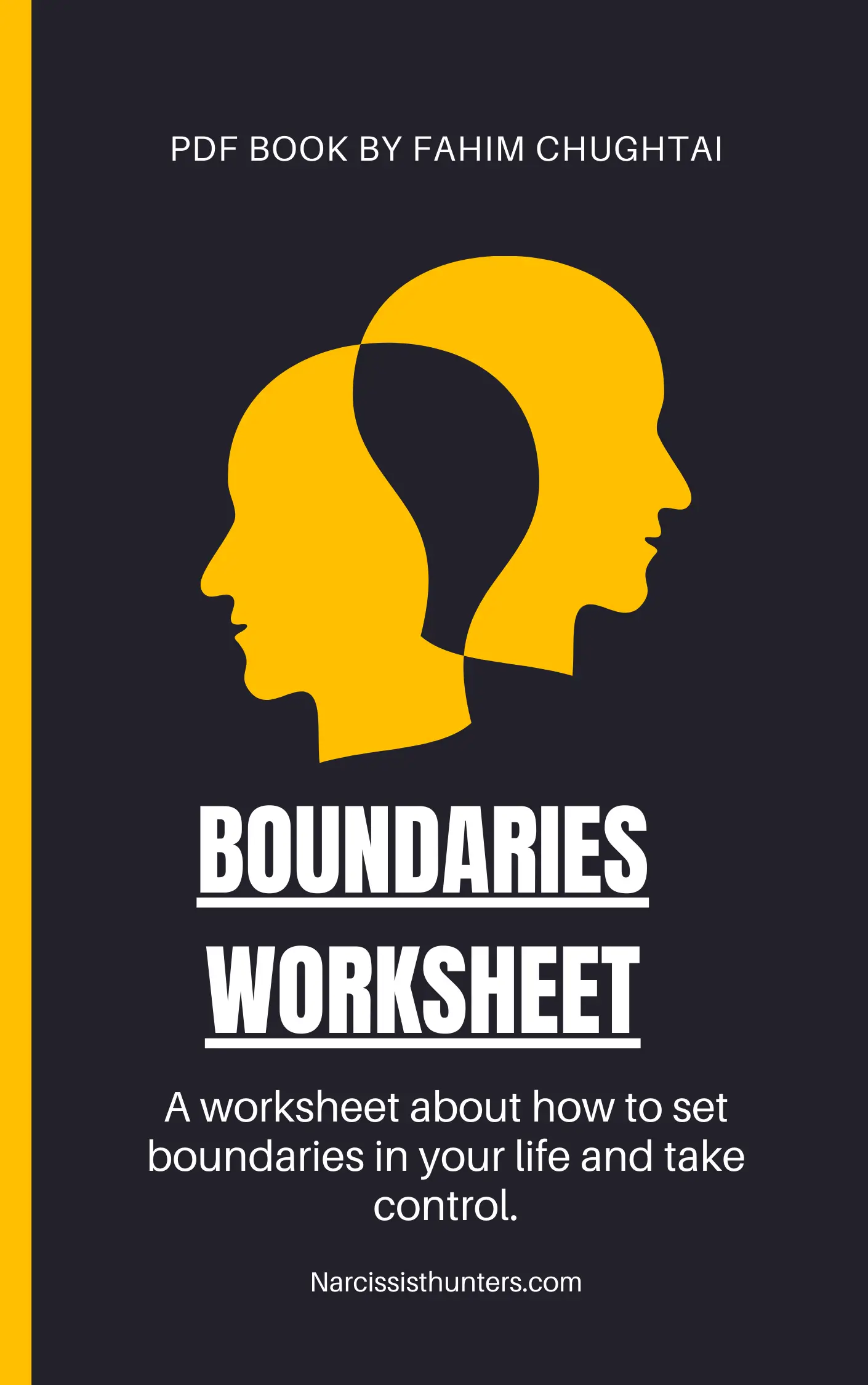Do toxic partners often ensnare you? Imagine confidently navigating dating, spotting narcissists early. This guide empowers you to prioritize healthy connections, understand red flags, and sidestep manipulation. In this blog post, I will provide you to ultimate guide how to avoid narcissists in dating.
We delve into techniques safeguarding emotional well-being. By recognizing narcissistic behaviors, you can avoid harm and cultivate trust-based, respectful relationships.
Through a listicle format, we unravel strategies identifying and avoiding narcissists in dating. Tips on setting boundaries, recognizing patterns, nurturing self-awareness. Discover forging genuine connections while sidestepping toxic partnerships for a happier dating journey.
Narcissists in Dating: An Introduction

Dating thrills, but narcissists lurk dangerously. Narcissism: grandiose self-importance, constant admiration need, lack of empathy. Romantic narcissists breed toxic, manipulative relationships.
Dating narcissists can harm your emotional well-being. They seem charming at first but hide toxic traits. Being aware helps avoid unhealthy connections. Narcissism involves self-absorption and lack of empathy. Learning the signs protects you from manipulation.
Understanding narcissism’s impact on relationships is key. Prioritize well-being by avoiding narcissists. This opens the door to genuine connections and happiness. Spot narcissistic red flags early. Take steps to protect yourself – you deserve trust, respect, and mutual support. Lets’s jump into how to avoid narcissists in dating.
How to Identify Early Signs of Narcissistic Behavior in Potential Partners

When dating, recognize early narcissistic behavior signs in partners. This safeguards emotional health, preventing toxic relationships. Watch for these red flags:
Excessive Self-Focus and Grandiosity
Narcissists act self-important, needing constant validation. They brag about achievements, ignoring others’ feelings or experiences. Note if a potential partner talks only about themselves, lacking interest in you.
Lack of Empathy
A core trait of narcissists is their inability or refusal to empathize with others’ emotions. They dismiss, belittle your feelings, invalidate experiences, or fail to grasp their words’ and actions’ impacts. If a potential partner consistently lacks understanding or sensitivity towards your emotions, it signifies narcissistic tendencies.
Manipulative Behavior
Narcissists are skilled at manipulating others to fulfill their needs. They use charm, flattery, or tactics like love bombing to gain control, exert power in relationships. Beware of sudden, intense affection displays or extravagant gestures early on, as these could manipulate you, establish dominance.
Boundary Violations
Respecting boundaries is vital in healthy relationships. Narcissists struggle with boundaries, disregarding yours without hesitation. They invade personal space, ignore preferences, or push oversharing personal information. Note how potential partners respond to boundaries, respecting limits.
Constant Need for Validation
Narcissists crave validation, admiration from others, seeking reassurance, praise to boost fragile self-esteem. They fish for compliments, demand attention, upset if accomplishments or talents aren’t recognized, celebrated. If potential partners constantly seek validation, attention, it indicates narcissistic tendencies.
Catching early hints of narcissistic traits can shield you from toxic bonds and secure your emotional health. Heed your instincts and gut feelings – if something seems amiss or uncomfortable, take it seriously. Consider whether a potential partner aligns with your values and emotional needs.
Setting and Maintaining Healthy Boundaries to avoid Narcissists in dating

Establishing and upholding healhty boundaries is crucial when navigating dating, especially avoiding narcissistic individuals. Clearly defining limits and expectations protects you and builds a foundation for respectful, balanced relationships. Here are practical tips:
1. Identify Your Values and Needs
Before any romantic relationship, reflect on values, needs, and priorities. Understand what makes partnerships comfortable and fulfilling. This self-awareness guides establishing boundaries aligning with values and meeting emotional, physical, and mental requirements.
2. Communicate Assertively
Expressing boundaries effectively is essential. Practice assertive communication using “I” statements, clearly and directly expressing needs and limits. Avoid passive-aggressive language or manipulation. Healthy boundaries require open, honest dialogue.
3. Trust Your Gut
Listen to your intuition and trust your instincts when it comes to relationships. If something doesn’t feel right, take a step back and evaluate the situation. Narcissistic individuals may push against your boundaries or disregard them altogether. Trusting your gut can help you identify potential red flags and take appropriate action.
4. Be Consistent
Consistency is key in maintaining healthy boundaries. Set clear expectations from the beginning and reinforce them consistently. Narcissists may test your boundaries, so it’s crucial to remain firm and not waver in your stance. Consistency sends a strong message that your boundaries are non-negotiable.
5. Practice Self-Care
Prioritize self-care and self-love throughout your dating journey. Nurture your emotional well-being, engage in activities that bring you joy, and surround yourself with a supportive network. Taking care of yourself strengthens your ability to establish and maintain boundaries, making you less susceptible to manipulation.
6. Seek Professional Support if Needed
If you find it challenging to set or maintain boundaries, or if you have experienced past relationships with narcissistic individuals, consider seeking support from a therapist or counselor. They can provide guidance, help you navigate complex emotions, and assist in developing healthy boundaries that align with your specific circumstances.
Remember, setting and maintaining healthy boundaries is not selfish; it is a crucial aspect of self-care and protecting your emotional well-being. You can avoid narcissists in dating by setting healthy boundaries. By prioritizing your needs and values, you can create fulfilling relationships while avoiding the traps of toxic dynamics.
Recognizing Manipulative Tactics To avoid Narcissists in dating

When dating, watch for manipulative tactics narcissists use. Spotting red flags early protects you from toxic relationships. Here are common manipulative tactics by narcissists, and how to avoid them:
Love Bombing
Narcissists excel at showering potential partners with attention and affection initially. This tactic, love bombing, aims to quickly bond you emotionally. But, if someone rushes intimacy and overwhelms you from the start, pause and assess. Healthy bonds build on trust, respect – not excessive flattery.
Gaslighting
Gaslighting manipulates partners to doubt reality. They twist facts, distort truth, undermine perceptions. If you often question your memory or sanity in the relationship, it could signal gaslighting. Trust your instincts. Seek outside validation from trusted friends or family for perspective.
Manipulative Guilt Trips
Narcissists wield guilt to control partners. They may play victim, blame you, or make you responsible for their emotions. Remember, you’re not responsible for someone’s happiness. Prioritize your needs, well-being. Set boundaries firmly, even if met with resistance or pushback.
Isolation and Control
Narcissists frequently seek to separate their partners from friends and family who could question their actions. Be cautious if your partner discourages or interferes with your external relationships. Healthy relationships support independence and each other’s social connections.
Recognizing manipulative tactics is only the beginning. It’s vital to take action to safeguard yourself. To avoid narcissists in dating, it is necessery to learn about their manipulation tactics.
Trust your instincts. Communicate boundaries clearly. Seek support from trusted friends or professionals, if needed. Don’t compromise your well-being for a relationship with someone exhibiting manipulative behavior.
Navigating Online Dating and Social Media To avoid Narcissists in Dating

Online dating and social media have transformed how we approach relationships. While these platforms offer opportunities to connect, they also present risks and challenges. In this section, we will explore navigating online dating and social media cautiously, particularly when identifying and avoiding narcissistic behavior. Soical media is full of narcissists now a days, to avoid narcissists in dating you should figure out how to recognize a narcissist on dating websites, Facebook, Instagram and X.
Recognizing Narcissistic Behavior Online
Online dating enables individuals to present themselves in a carefully curated way. Narcissists may exploit this anonymity to create a false, idealistic persona. However, there are red flags that can help identify potential narcissistic behavior:
1. Excessive Self-Promotion: Notice people always bragging about accomplishments, belongings or looks. This self-obsession could mean narcissism.
2. Lack of Empathy: Narcissists show little empathy, disregarding your feelings or experiences. If someone consistently ignores how you feel, that’s a warning.
3. Constant Need for Validation: Watch for those always seeking praise and attention from others. They may require constant reassurance and admiration, reflecting narcissistic traits.
4. Gaslighting and Manipulative Tactics: Narcissists use gaslighting tactics to control partners. They downplay your feelings, distort truth, making you doubt your sanity.
Using Social Media Wisely
Social media reveals behavior and personality. Observe their online presence to spot potential narcissistic signs:
1. Consistency in Behavior: Look for consistency between online persona and real interactions. Drastic differences online vs. offline could indicate an issue.
2. Excessive Selfie Culture: While posting selfies is normal, an excessive focus on appearance and self-admiration suggest narcissistic tendencies.
3. Attention-Seeking Behavior: Watch for people who constantly seek attention and validation. They prioritize being popular over real connections.
4. Comparison and Envy: Beware of those comparing themselves to others often. They express envy towards accomplishments or possessions. It’s a narcissistic trait.
Protecting Yourself
To navigate dating and social media confidently, prioritize your well-being. Protect yourself from potential narcissistic partners by:
1. Trust Your Instincts: If something feels wrong or against your values, trust your gut. Don’t ignore red flags.
2. Set Clear Boundaries: Establish boundaries early. This filters out those who disregard your needs or push limits.
3. Take It Slow: Don’t rush relationships or share personal info quickly. Allow trust to develop naturally over time.
4. Seek Support: If dealing with a narcissist, get guidance from friends, family, or professionals.
Remember, dating and social media can help find genuine connections. By staying vigilant and prioritizing well-being, you minimize risks of narcissistic partners.
Developing Self-Belief and Inner Value To avoid narcissists in dating

Fostering self-confidence and cultivating self-worth are vital steps in avoiding narcissistic partners when dating. With strong beliefs in ourselves and our intrinsic value, we’re better equipped to recognize and steer clear of toxic relationships. Here are strategies to boost self-confidence and promote a healthy sense of self-worth:
1. Practice self-compassion and self-care
Caring for yourself emotionally and physically is key for building self-confidence. Engage in activities that bring joy, prioritize self-care routines, and treat yourself with kindness and understanding. Acknowledge you deserve love and respect.
2. Focus on strengths and accomplishments
Take stock of achievements and recognize strengths. List accomplishments and unique qualities. Celebrate successes and remind yourself of capabilities. This positive self-reflection will bolster confidence.
3. Surround yourself with positive influences
Build a supportive network of friends and loved ones who uplift and empower you. Avoid individuals who undermine self-esteem or engage in manipulation. Surrounding yourself with positive influences will nurture self-worth and protect from narcissistic partners.
4. Set boundaries and stick to them
Defining limits is necessary for healthy bonds. Specify what’s okay and not okay. Voice your boundaries clearly and firmly. Respect your own limits – be ready to enforce them. This way, you’ll attract people who also respect your boundaries.
5. Challenge negative self-talk
Putting yourself down can harm your self-confidence and make you susceptible to narcissistic partners. Practice positive self-talk. Challenge pessimistic thoughts. Replace self-doubt with self-belief. Cultivate an optimistic outlook.
Trusting Intuition and Listening to Gut Feelings to avoid Narcissists in dating

Trusting intuition and heeding gut feelings are vital when dating and avoiding narcissistic partners. Rational thinking is important, but instincts also help recognize red flags and make informed relationship decisions. Here’s how to tune into inner wisdom and heed warning signs:
1. Understand your desires, limits, and deal-breakers for relationships. Self-awareness guides intuition when partners are unsuitable. It all starts with knowing yourself deeply.
2. How do they make you feel? Listen closely. Unease or discomfort signals trouble. Your emotions reveal the truth – ignore them at your peril.
3. Words and actions conflict? That mismatch indicates manipulation. Mixed signals scream untrustworthiness. Go with your gut instinct to avoid deception.
4. Learn from the past, don’t repeat history blindly. Identify toxic patterns missed previously. That wisdom prevents future missteps.
5. Gain trusted perspectives from those who genuinely care. Sometimes we lack objectivity. Loved ones can provide enlightening insights we’ve overlooked.
Remember, trusting your gut doesn’t imply rejecting someone over small flaws or forming conclusions without proof. It means being aware, heeding your instincts, and making informed choices. By trusting your intuition and listening to your inner voice, you can safeguard yourself from potentially toxic relationships and cultivate healthier connections in the dating realm.
Seeking Support and Professional Assistance to avoid narcissists in dating

Navigating narcissistic relationships can be draining and emotionally taxing. It’s crucial to seek guidance from friends, family, or professional counselors who can offer support and aid. Obtaining help not only assists in navigating the complexities of narcissistic dynamics but also fosters healing and recovery. Here are key advantages of seeking support and professional assistance:
1. Validation and Understanding
When dealing with a narcissistic partner, it’s common to feel confused, invalidated, and gaslit. Seeking support from trusted individuals allows you to share your experiences and emotions with those who comprehend and believe you. They can provide validation and reassurance that your feelings and concerns are legitimate.
2. Emotional and Practical Guidance
Supportive friends, family, or therapists can offer emotional guidance, helping you process the trauma and emotional upheaval caused by narcissistic relationships. They can provide practical advice on setting boundaries, developing coping strategies, and creating a safety plan if needed. Their expertise enables you to better navigate narcissistic dynamics’ complexities.
3. Perspective and Objectivity
Staying objective gets hard when enmeshed in narcissist ties. Outside, neutral support aids clarity – grasping complex dynamics. Fresh perspectives reveal insights you hadn’t pondered, empowering informed choices.
4. Empowerment and Self-Esteem Boost
Narcissistic bonds often undermine self-worth. Supportive folks rebuild self-esteem, reminding you – you matter. Fostering growth, self-care, healthy boundaries. They guide reclaiming life control, well-being-centered choices.
5. Connecting with Others Who Have Similar Experiences
Joining support groups or therapy links you to others navigating narcissistic bonds. Sharing journeys, insights, coping – deeply comforting for those treading parallel paths. Realizing you’re not alone soothes struggles.
6. Professional Resources and Interventions
Severe narcissistic abuse may necessitate professional trauma/NPD therapists. Tailored therapies like CBT facilitate healing, recovery from woundings. Interventions address unique challenges, easing the way forward.
Don’t view seeking help as a weakness; it’s a step towards healing and regaining control. Reach out to trusted people or professionals who can guide and support your recovery journey.
“True healing comes from friendship and love.”
– Hubert H. Humphrey
The Final Thoughts on How to avoid narcissists in dating
In summary, dating requires vigilance to avoid narcissists’ traps. Prioritize self-care and healthy boundaries for a happier dating life.
This guide explored strategies to identify and avoid narcissists in dating. We discussed recognizing early signs like excessive self-centeredness, lack of empathy, and manipulation tactics. Trust your instincts if something feels off.
Setting and maintaining healthy boundaries protects you from narcissistic partners. Clearly communicate needs, firmly upholding your limits. Compromising well-being is never worth a narcissistic relationship.

Download boundaries worksheet Free
Don’t know how to set boundaries with narcissists and toxic people in your life? We created a free woksheet to establish firm boundaries in your life to save your emotional well being.
In online dating and social media, exercise caution and skepticism towards overly charming or superficial individuals, recognizing potential risks.
Building self-confidence and self-worth prevents dating narcissists. See your value and embrace strengths. Valuing yourself helps avoid settling for less.
In toxic relationships, get support from friends, family, therapists. They guide and assist when needed. Remember – resources are available. You aren’t alone through challenges.
RehumanizePrioritize well-being and happiness above dating difficulties. The dating world challenges, but staying true to yourself and maintaining healthy boundaries finds genuine connections. It protects from narcissists.
